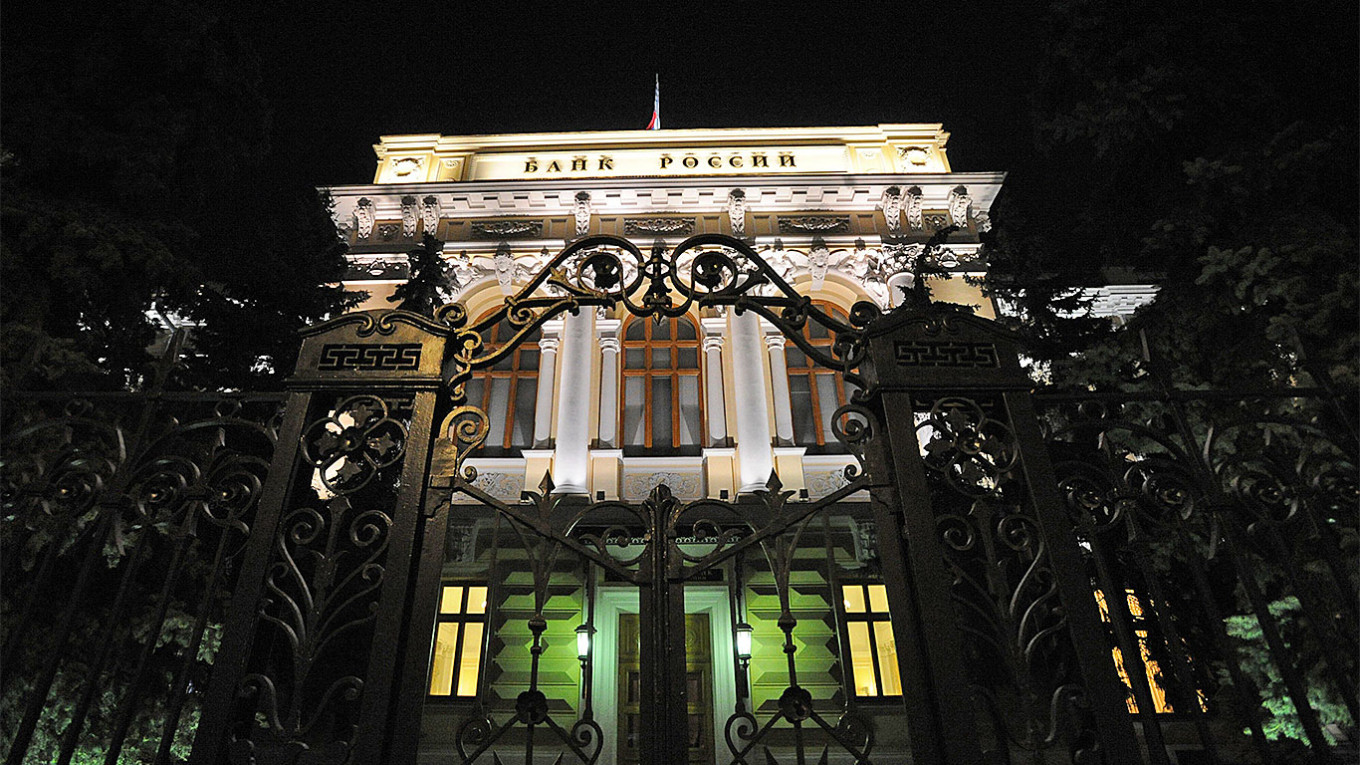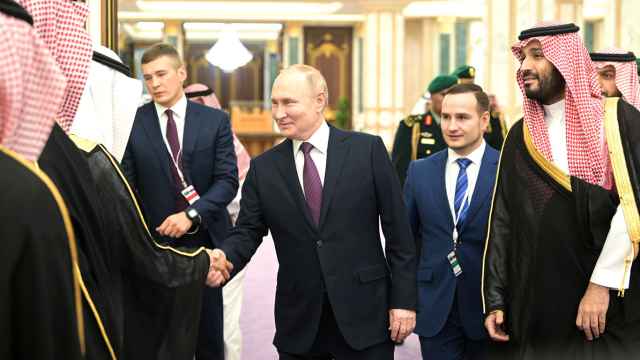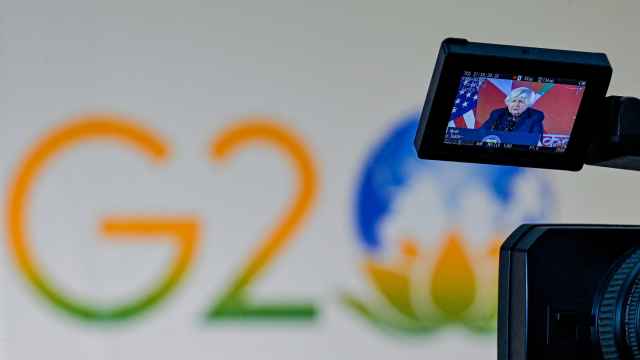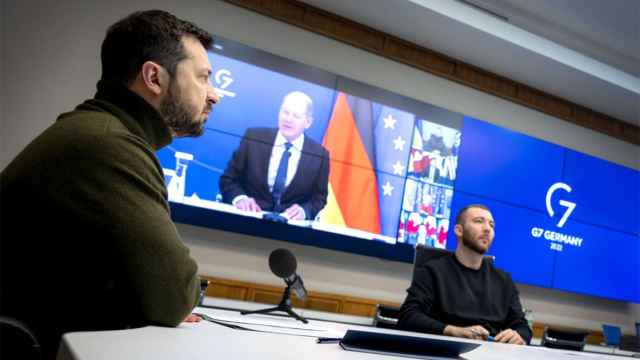As Russia’s full-scale invasion of Ukraine has dragged on, the West has regularly expanded its support for Ukraine. What was once unthinkable — arming Kyiv with advanced tanks and long-range missiles, and even cluster munitions and fighter jets — has repeatedly become doable.
But there is one giant exception: Western governments have refused to use the huge sums of Russian state assets that are frozen in their financial systems to help the victims of the Kremlin’s war. And yet the moral, legal and strategic case for doing so is compelling. It is time to seize the moment and seize these assets.
At the start of the war, G7 countries and their allies froze Russian Central Bank (CBR) reserves deposited in their jurisdictions. This well-coordinated and highly effective move deprived Russia of access to — but not ownership of — these assets. While we do not know their exact value, as most states refuse to disclose their holdings, they are believed to total over $300 billion — twice Ukraine’s current GDP.
Throughout the invasion, Russia has inflicted over $400 billion of damage on Ukraine and committed thousands of alleged war crimes. Ukraine’s national income has crashed by a third, leaving the country desperately needing continuous financial support. The West has generously provided over $150 billion in financial and military aid. But its coffers are not bottomless. President Vladimir Putin remains confident that Russia will win the war by outlasting its adversaries in a contest of resolve, one that exhausts Ukraine and proves too costly for the West.
The solution is obvious: use Russia’s assets to compensate the victims of its aggression, while also easing the burden on Western taxpayers. The West took bold, creative risks when it provided military support for Ukraine and imposed an unprecedented flurry of sanctions on Moscow. Since then, Russia’s CBR assets have laid dormant. When it comes to the question of whether these assets should be seized and used to help Ukraine, Western governments remain timid and avoidant.
Why have states been so reluctant to debate the issue openly? They would appear to have four concerns in mind.
The first is legal: state assets enjoy sovereign immunity under international law and thus may not be seized.
But international law also offers a solution. Instead of a sanction, an asset seizure can be a proportionate countermeasure to a grave breach of international norms, and there is no doubt that Russia’s invasion of Ukraine constitutes such a violation.
As Professor Philip Zelikow of Stanford University and others have shown, there are well-established legal principles for developing a powerful case for Western states to take custody of Russian state assets. While Western governments are opaque about the legal advice on which they are basing their approach, they do not appear to have seriously explored their options. They should do so now.
The remaining three concerns are related to policy, not law. They suppose that even if Western states are allowed to seize Russia’s assets, they should not take this step because the costs of the precedent it would set would outweigh the benefits. This assertion is dubious.
First, policymakers assume that an asset seizure could undermine Western currencies as a store of value. But if the G7 and their partners coordinate taking over CBR assets as effectively as they froze them, all of the world’s major reserve currencies would be involved. This would deprive Russian capital of any feasible safe havens to which it could flee. Instead of weakening the global financial system, such a move would be a formidable demonstration of the West’s strength.
The next concern is that seizing Russian state assets would set a bad precedent that hostile states could use against Western companies. This argument conflates state and private assets. Seizure of the former as a state countermeasure sets no legal precedent for the treatment of the latter. This is not something of concern to hostile states like Russia, as the Kremlin has already appropriated the Russia-based assets of four major European companies and handed them to its cronies
Finally, some have argued that seizure could deter other states from depositing their reserves in Western banking systems. But an asset seizure inflicts no harm beyond what has already been done. It simply means that assets Russia no longer controls will be repurposed to help Ukraine. Immobilizing these assets at the start of the war set a far more significant precedent by cutting Russia off from its CBR assets. The West rightly had no qualms about taking that step.
So, what is the West’s official policy? After more than a year of hesitation, the G7 declared in May that Russia’s assets “will remain immobilized until Russia pays for the damage it has caused to Ukraine.” This policy cannot succeed for three reasons.
First, Russia will never compensate Ukraine, let alone acknowledge its legitimacy as a state, unless it undergoes radical and systemic domestic change. Deposing Putin — itself a tall order — would not be enough as it would require a transformation of Russia’s regime and worldview. It is absurd to assume such a scenario as a precondition for success.
Second, the G7’s position gives Russia no incentive to help rebuild Ukraine. The scale of destruction that Russia has brought on Ukraine means that any compensation it would have to pay Kyiv far exceeds the sum of its assets frozen by the West. Why would Russia agree to be left worse off than before?
Third, the G7 envisages compensation to Ukraine only after the war is over. But Ukraine cannot wait since it urgently needs help now. Its resilience, and thus the outcome of the war, depends on support today, not tomorrow. The longer Western policymakers delay, the less likely it is that Ukraine will win — and thus Russia will feel uncompelled to pay anything at all.
There is visible unease among Ukraine’s allies with the unrealistic, illogical and contradictory position Western policymakers have taken on the issue of Russia’s frozen assets. Canada is making progress toward seizing CBR assets, and the U.S. Congress is considering draft legislation to do the same. The EU, where most of Russia’s frozen money remains held up, is exploring ways to invest the assets and give the returns to Ukraine. But the sums involved in these discussions are trivial compared to Ukraine’s needs. Moreover, Russia will argue that since it still owns the assets, it also owns the income they generate.
If the West does not act, it risks a grand strategic failure. While its professed commitment to Ukraine remains strong, it is not marshaling the means to match it. The situation is now dire, with budget disputes in Washington and Brussels putting future funding for Kyiv in jeopardy. Seizing CBR assets would not only make huge financial resources available for Ukraine at Russia’s expense but it would also send a powerful signal of Western resolve to the Kremlin.
As things stand, the West provides Ukraine weapons with which to kill Russian soldiers, but it refuses to give Kyiv Russian money. It is time to demonstrate the same boldness and creativity in the financial realm as it has in security. The war has become a war of attrition. Nobody can afford to hesitate any longer.
A Message from The Moscow Times:
Dear readers,
We are facing unprecedented challenges. Russia's Prosecutor General's Office has designated The Moscow Times as an "undesirable" organization, criminalizing our work and putting our staff at risk of prosecution. This follows our earlier unjust labeling as a "foreign agent."
These actions are direct attempts to silence independent journalism in Russia. The authorities claim our work "discredits the decisions of the Russian leadership." We see things differently: we strive to provide accurate, unbiased reporting on Russia.
We, the journalists of The Moscow Times, refuse to be silenced. But to continue our work, we need your help.
Your support, no matter how small, makes a world of difference. If you can, please support us monthly starting from just $2. It's quick to set up, and every contribution makes a significant impact.
By supporting The Moscow Times, you're defending open, independent journalism in the face of repression. Thank you for standing with us.
Remind me later.








